Sales of Samsung's flagship Galaxy S4 are falling short of initial estimates as much as 30 percent, causing an implosion of $20 billion of the firm's market value as analysts reconsider their formerly rosy expectations.
A report by Reuters described cuts by a flurry of analysts in the face of "industry data pointing to a fast-saturating segment," the same concerns that battered Apple's share price last fall.
The report cited Byun Hanjoon, an analyst covering Samsung for KB Investment & Securities, as saying "I'd say most forecasters including myself had this conviction that they'll outperform again - because it's Samsung. They had beaten expectations before, which led many to believe they are bound to excel again with the S4."
Samsung announced having shipped a record ten million units of the new S4 to its global partners, beating its shipments of last year's S3 model with a number that was also compared to Apple's Initial sales of 5 million iPhone 5 units.
Lackluster sales prospects going forward
The difference was that Apple actually sold 5 million units in its first three days across just 9 launch countries. Samsung's larger number related only to carrier shipments, not end user sales, and included 60 launch countries, with Korea, China and India among that number, all major markets Apple didn't reach with the iPhone 5 in its initial launch weekend.
Reuters incorrectly reported that Samsung sold those 10 million phones in its first month. Analysts caught up in the hysteria of the S4 launch initially predicted blockbuster sales of the device and continued momentum of sales, but are now backpedaling as actual sales data becomes available."The S4, in reality, also lacks any real wow factor."
The report cited analysts as pointing to "lacklustre prospects in Europe and [Samsung's home territory of] South Korea in particular," adding that "the S4, in reality, also lacks any real wow factor."
It cited a report by Goldman Sachs analyst Michael Bang, who wrote, "The Street, including Goldman Sachs, admittedly extrapolated the first-quarter earnings momentum through the year. This resulted in very optimistic earnings expectations."
Sales estimates by Bank of America Merrill Lynch have been cut by 5 million throughout 2013, but Reuters noted that "most analysts have reduced their estimates for S4 shipments to around 7 million units a month from their previous average expectation of 10 million."
Even the loss of 5 million units would equate to a drop in $1 billion in operating profits, the report cited analysts as stating.
Seeing what sticks as the buzz fades
In contrast, Apple sold 37.4 million iPhones in the most recent Q2 ending in March, beating Wall Street's institutional consensus of 35.86 million.
Samsung has been trying to prop up sales of the S4 by experimenting with a flurry of models sporting smaller screens, even larger screens, ruggedized coatings and a fancier camera.
The S4 is also accompanied by the Note phablet series and flanked by a wide range of low end models, many of which still run very outdated versions of Android. The more models Samsung produces, however, the more work it will assume in optimizing its designs and support across all of those produces."I don't think there'll be as much buzz surrounding new product launches as it used to be."
The company tried to warn analysts earlier in the year that it knew that easy sales in the smartphone market were drying up and that competition was getting tighter.
"The furious growth spurt seen in the global smartphone market last year is expected to be pacified by intensifying price competition, compounded by a slew of new products," the Telegraph UK wrote in January, citing a Samsung report that cautioned, "demand for smartphones in developed countries is expected to decelerate."
Going forward, analysts expect that "conservative forecasts will prevail," Reuters noted.
"Expectations for innovation have been lowered," Hanjoon observed, "and I don't think there'll be as much buzz surrounding new product launches as it used to be."
Next target for smartphones: the middle
Apple has so far focused almost entirely at the high end of the market, only ever offering one flagship model of iPhone and selling previous years' models as its entry level options. That positions Apple very similar to the point it was when it only sold one version of the iPod, just prior to releasing the iPod mini and nano models that rapidly ate up the lower end of the MP3 market.
Apple is widely expected to release a new lower priced iPhone model later this year, aimed directly at eating into the middle tier of smartphone sales.
Reuters noted that "mid-tier models," currently "aggressively" targeted by "Chinese rivals" is "a segment in which Samsung has relatively weak positioning," noting that the mid-tier segment "accounted for less than 15 percent of Samsung's total shipments last year."
Samsung also faces the threat of a broad U.S. import ban over multiple patent infringements, and two U.S. patent cases that involve monetary damages still being determined.
Apple's significant new redesign of iOS 7 will also force Samsung to either come up with its own parallel refresh or end up looking dated with a variety of features and app designs and its an overall appearance taken directly from previous versions of Apple's iOS.
 Daniel Eran Dilger
Daniel Eran Dilger
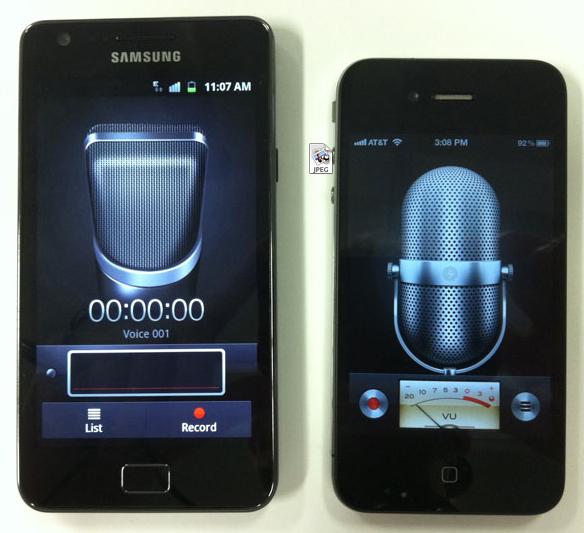

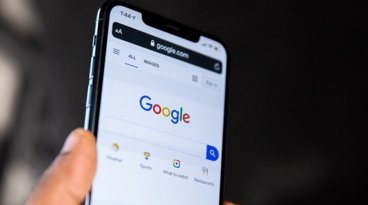



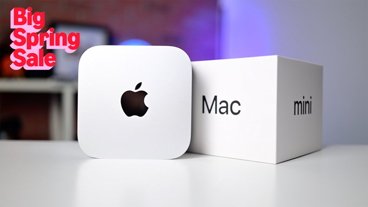
-m.jpg)






 Sponsored Content
Sponsored Content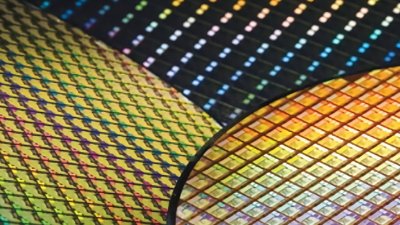
 Malcolm Owen
Malcolm Owen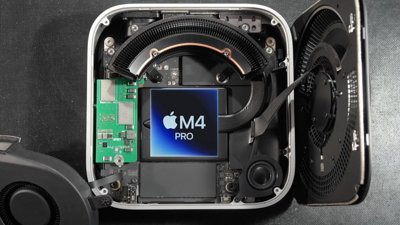
 William Gallagher
William Gallagher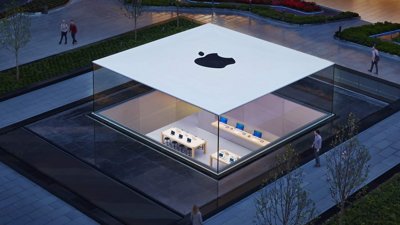
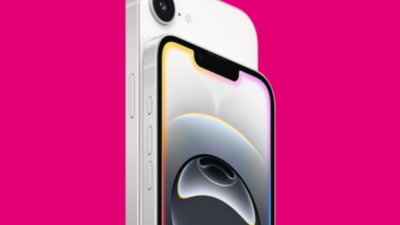
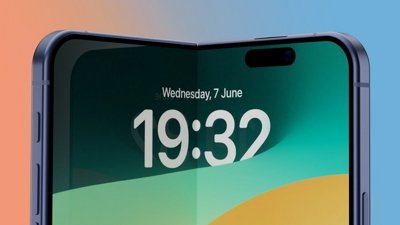
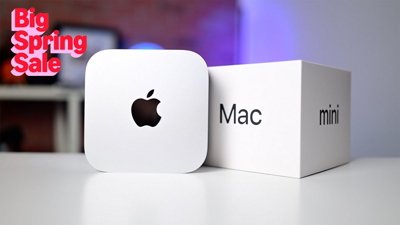
 Christine McKee
Christine McKee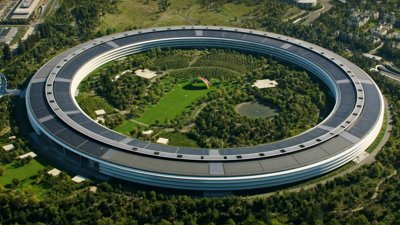
 Wesley Hilliard
Wesley Hilliard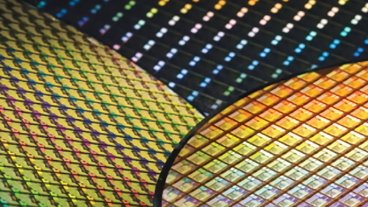
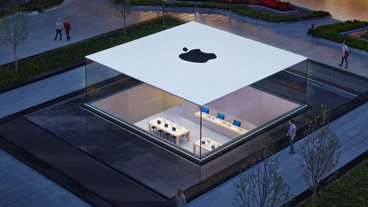
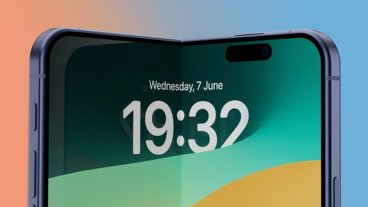





137 Comments
This is actually worrying news for Apple as well, IMO. Pretty much every premium smartphone released in the past year has failed to live up to the sales expectations of Wall Street. In the case of Apple, the surprising story has been how much the iPhone 4 and 4S at lower price points have cannibalized sales that likely would otherwise have been iPhone 5 sales -- for many customers, having an iOS smartphone with excellent build quality is all they needed; the extra speed and features of the iPhone 5 weren't enough fro them to spend more for it. I suspect that Samsung is finding that many of its customers are opting for the price-reduced Galaxy S3 instead. Or the market for high-end Android will no longer accept cheap build quality and has opted for the HTC One. Or, perhaps most likely, many smartphone customers aren't bothering to upgrade when their contracts are up because their current phone works well enough and they're waiting until the day that they drop their phone in the toilet to use the upgrade pricing. Although most people on this site, including myself, would never trade away LTE or the speed and extra screen size of the iPhone 5 for a $100-200 discount on an older model, we're the minority of consumers. When the 5S and cheap plastic iPhone are released, I think Apple will discontinue the iPhone 4, 4S, & 5 altogether and force consumers to choose either the premium build of the 5S, or a plastic iPhone if they want the free with subsidy option.
Now there's a surprise-analysts got it wrong!! Just as they did when the Apple share price was up over $700.It is the usual analysts herd mentality-the savvy investor should virtually always act contrary to analysts.
This is actually worrying news for Apple as well, IMO. Pretty much every premium smartphone released in the past year has failed to live up to the sales expectations of Wall Street. In the case of Apple, the surprising story has been how much the iPhone 4 and 4S at lower price points have cannibalized sales that likely would otherwise have been iPhone 5 sales -- for many customers, having an iOS smartphone with excellent build quality is all they needed; the extra speed and features of the iPhone 5 weren't enough fro them to spend more for it.
I suspect that Samsung is finding that many of its customers are opting for the price-reduced Galaxy S3 instead. Or the market for high-end Android will no longer accept cheap build quality and has opted for the HTC One.
Or, perhaps most likely, many smartphone customers aren't bothering to upgrade when their contracts are up because their current phone works well enough and they're waiting until the day that they drop their phone in the toilet to use the upgrade pricing.
Although most people on this site, including myself, would never trade away LTE or the speed and extra screen size of the iPhone 5 for a $100-200 discount on an older model, we're the minority of consumers.
When the 5S and cheap plastic iPhone are released, I think Apple will discontinue the iPhone 4, 4S, & 5 altogether and force consumers to choose either the premium build of the 5S, or a plastic iPhone if they want the free with subsidy option.
It was also "worrying news for Apple" when it was left the only vendor selling a $400 10GB hard drive MP3 player in quantity and there were all these flash memory MP3 player options available for significantly less. Lots of worrying.
And then when Apple took over the flash memory MP3 market there was lots of worrying that all these smartphones that were getting popular were able to play MP3s, and what would Apple do after people stopped needing an iPod? Lots of worrying.
And then when netbooks started getting the headlines, there was lots of worrying that Apple's Mac lineup needed a netbook version or all these $200 netbooks running Linux or Windows 7 would destroy the market for full priced, high end devices. Lots of worrying.
Lots of worrying. You're not alone, don't worry. There's lots of worrying out there.
This is actually worrying news for Apple as well, IMO. Pretty much every premium smartphone released in the past year has failed to live up to the sales expectations of Wall Street. In the case of Apple, the surprising story has been how much the iPhone 4 and 4S at lower price points have cannibalized sales that likely would otherwise have been iPhone 5 sales -- for many customers, having an iOS smartphone with excellent build quality is all they needed; the extra speed and features of the iPhone 5 weren't enough fro them to spend more for it.
I suspect that Samsung is finding that many of its customers are opting for the price-reduced Galaxy S3 instead. Or the market for high-end Android will no longer accept cheap build quality and has opted for the HTC One.
...............
Nice post. I agree totally. It is like computers 2000-2007 ish. The hardware was struggling to keep up with the software and this was a problem for most users. For the last 5 years or so that has not been the case. Only high end users were regularly updating their hardware as an off the shelf mid range PC can do everything most people want. It is the same with the phone now. My 12 month old HTC is faster and has more memory than a PC I bought in 2001. I will ride it into the ground as the newer bells and whistles are getting less and less appealing. And then there are always the people who like to flash the latest gadget, even if it is not adding annything functionally significant to their previous phone.
DED, I like the very last paragraph! See how they copy...